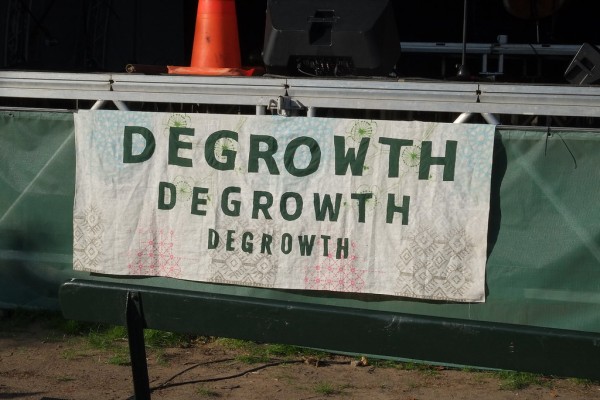Reimagining the left in times of crisis
New collection challenges and explores numerous paths out of the ecological wasteland capitalism is condemning us to
It is a commonplace on the left to speak of the crisis of capitalism, often claimed to be terminal. What is less obvious is how the left can take advantage of such crises to bring the predatory beast to ground. Even rarer is the admission that there is also a crisis in socialism. Sectarian denunciations of this or that trend—social democracy, Trotskyism, anarchism—is frequent enough, but acknowledging that what passes for socialism more generally in our era falls far short of the mark is a difficult admission: the mark in this case being the creation of an eco-socialist society democratically organized around a sustainable and egalitarian way of life.
This is why a new book published by Fernwood entitled Challenging the Right, Augmenting the Left is such a breath of fresh air. Here a group of socialist thinkers, mostly (but not exclusively) centred around York University in Toronto, have pulled together a collection of essays that in their words seeks to “recast the Leftist imagination.” To do this, the collection of 20 essays covers the waterfront—from challenging the limits of identity politics, to putting collective civil liberties at the centre of the class struggle and to addressing the social and ecological transformation necessary to overcome a capitalism committed to unsustainable productivist growth. It moves from contributions of high theory to practical tactical and strategic considerations for building and promoting the left.
A number of the essays explore the difficult terrain of neoliberal domination that the left must navigate in the 2020s. They try and work through a political situation where, despite significant dissatisfaction with the system among relatively large sections of the working class, the political benefits are being reaped by authoritarian populist figures on the right who deftly employ scapegoating to deflect attention away from their particular brand of crony capitalism. The essays are particularly good at teasing out the way the right in Europe and North America manipulates the status game, mobilizing workers primarily based on their white privilege. The essays also explore the way Hindu and Sunni identities are manipulated to pit workers against one another (Muslims, Kurds, migrants). They identify a high level of anxiety generated by neoliberalism that helps shape a social terrain marked by incivility and exclusion. The result is what Max Haiven has theorized as a form of violence-prone revenge capitalism that targets everyone from homeless people to racialized minorities.
Some of the best pieces are the one’s dealing with culture as a terrain of struggle. These explore a number of left strategies to undermine the cultural nationalism that the populist right has fallen back on, with some success, to separate the economic elite from the supposed cultural elite that looks down on ordinary people. This is part of the populist right’s strategy for portraying themselves as the perpetual outsiders and redirecting the discontent with the system against the supposed cultural arrogance of intelligentsia and the other—mostly already disadvantaged minorities. The essays also explore the technocratic notion of post politics and the way it is used to depoliticize spheres of struggle from taxes to immigration. There is an excellent contribution by Ozgun Topak on repoliticizing the migration crisis to break out of the racist and liberal philanthropic treatment of migrants as either criminals or victims.
The essays, while mostly dealing with Canadian issues, also explore the difficulties faced by the left in India and Turkey in combating authoritarian populism and the challenges of sustaining the political promise of the eco-socialist and degrowth-oriented Buen Vivir in Latin America in the face of pressures to compromise with orthodox development models. There is a fine piece by David Ravensbergen that takes up the theme of left challenges presented by the Anthropocene.
Having read each other’s pieces, the authors of the various essays in the collection interact—agreeing, disagreeing, or extending each other’s arguments or providing nuance in a comradely creative spirit. They come together in a way that implicitly addresses the age old question of ways and means by prefiguring where we need to go to if an enhanced left is to build a practical yet attractive challenge to the neoliberal terrain. It is perhaps unfortunate that these essays were mostly written before the current pandemic and the political and economic responses to it which have significantly reshaped the terrain and terms of the neoliberal project.
Overall, however, this is a fine collection willing to challenge and explore a number of different paths out of the ecological wasteland that the many forms of capitalism are condemning us to. But it also goes some way to addressing the largely unrecognized crisis of all too many of the alternatives to that capitalist system.
Richard Swift is a freelance journalist and activist based in Montreal. He is a founding member of Between the Lines and worked for many years as an editor for the Oxford-based New Internationalist magazine. He is the author of a number of books including SOS: Alternatives to Capitalism.










